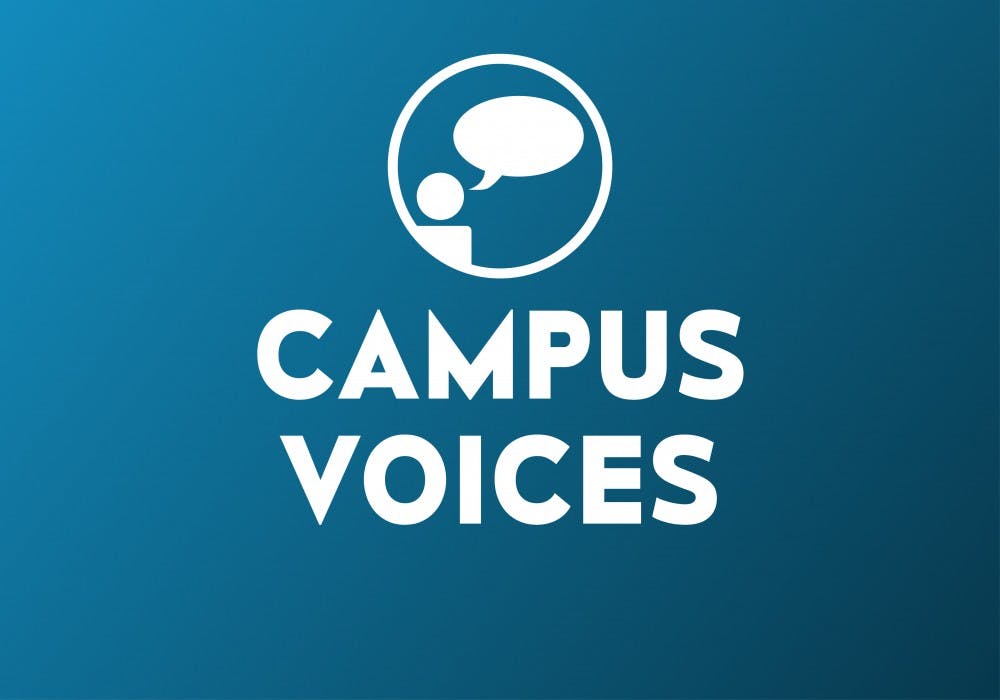Incoming college students pack their bedding, clothing and laptop — as well as many of the morals, values and opinions from their pre-college lives — before leaving for school.
Their baggage includes their experiences in their digital lives as well, such as their Facebook, Twitter and Instagram feeds, groups and friends. We all arrive, floating in our own bubbles, and it is up to us to pop them — or not — as we see fit.
These days, more often than not, we spend time living within our own bubbles.
In addition to our friends, we also take to our Facebook, Twitter and Instagram feeds when we feel strongly about a national or world event — especially if it’s fiery or controversial.
We don’t read all the news — we read the news that reflects our viewpoints.
We don’t talk to all of our friends, or join a variety of groups.
We stick with those who agree with us, or that we agree with. On social media, not only do we have the power to follow or be friends with like-minded people, but we also can unfriend and block people who think differently.
Social media and search engines even encourage our tendency to bubble. Yes, bubble was just used as a verb.
A study recently published by MIT Technology Review revealed the results of a simple Google search. Two individuals Googled “BP.” One person’s search results were focused on the Deepwater Horizon oil spill. The other person received search results primarily on British Petroleum’s investment news.
Google has so much information on who we are and what we search for, read and participate in online that it can provide us with search results that are most applicable to each of us. Facebook, Instagram and Twitter do the same thing for advertising purposes.
We are all shown the news, products and ideas we are most comfortable seeing. The unintended consequence? A reinforcement of our bubbles.
If you spend your time with only those ideas and people who agree with you, how are you going to coexist with those who have polarizing views, let alone work together toward anything?
It seems to me that we will just become more and more entrenched in our own ideas, and less and less willing to listen to other.
This is a problem.
A quick Google of the word, “bigoted” reveals the following definition: “having or revealing an obstinate belief in the superiority of one’s own opinions and a prejudiced intolerance of the opinions of others.”
It is quite sobering to realize that,if we only accept what we want to, and not open our minds to other perspectives and opinions, we are in fact, not accepting people. We are, by definition, bigots.
There needs to be a bubble-popping movement.
There does not need to be a famous leader, experienced staff, pamphlets, signs or a megaphone. We need only ourselves, and maybe Mahatma Gandhi.
“Be the change you wish to see in the world” is a very famous quote, often attributed to Gandhi. But, no actual documentation proves that he ever said this. Gandhi did make a similar statement, however:
“If we could change ourselves, the tendencies in the world would also change. As a man changes his own nature, so does the attitude of the world change towards him… We need not wait to see what others do.”
What if just a few of us open up a little bit, pop our bubbles and see what happens?
When faced with perspectives and opinions that are not in sync with our own, let’s stop. Let’s breathe. Let’s lean on curiosity, not animosity. We are not listening if we’re waiting to throw the latest article, factoid or statistic from our own comfort zones at folks who don’t want to leave theirs.
Let’s ask questions and avoid dismissing points of view so we can take the time to analyze and process and sit with the uncomfortable and see what happens.
Let’s not approach someone who feels differently with the goal of convincing them that they are wrong, but with the goal of understanding that we might be. What can we learn?
We should look deep inside ourselves and realize that, no matter how right we each feel when confronted by someone with a polarizing opinion, we are but one variable of a human equation.
The reality is that we depend on each other in day-to-day life. Dismissing those who disagree with you usually does not lead to something good. Coexistence, as uncomfortable as this is for us sometimes, is not an option.
Understanding, consideration and acceptance of others’ points of view, including political points of view, are concepts we need to get very cozy with, not just if we want to get through college, but if we want to move forward as a species.


